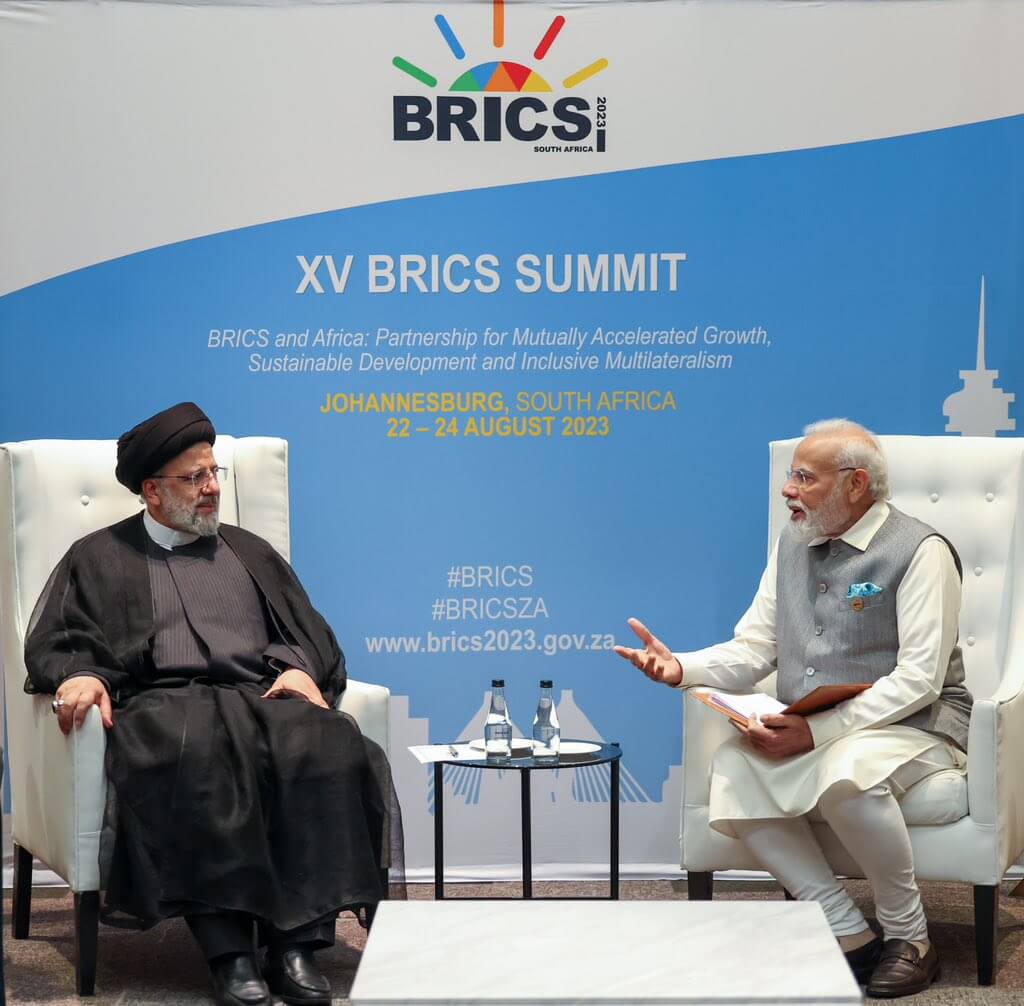In a significant development in India-Iran relations, New Delhi and Tehran have agreed not to seek foreign arbitration for disputes between users and operators concerning the Chabahar port.
The Iran Daily reported about the development, which will remove a major hurdle in signing a long-term agreement on the India-designed facility. The move follows the announcement of Iran’s inclusion in Phase 1 of the BRICS expansion.
Overview
According to the report, an informed source said India and Iran “have agreed that disputes at Chabahar will not go for commercial arbitration in foreign courts but take investment arbitration or any other mode of dispute settlement. This would prevent Iran from having to amend its Constitution.”
India had earlier suggested that arbitration matters be taken up in Dubai or Mumbai. Under the Iranian Constitution, a constitutional amendment is required to refer an arbitration to a foreign court.
India and Iran drop foreign court arbitration for Chabahar port, reports @janusmyth. #mustread https://t.co/4qbBs9IUW6
— Suhasini Haidar (@suhasinih) August 25, 2023
As per the new change, India and Iran will now pursue arbitration under the UN Commission on International Trade Law (UNCITRAL), which India favours over other trade arbitration mechanisms.
The Indian Ministry of Port and Shipping is reportedly expected to visit Iran in September to try and reach an agreement over the rules of engagement and mode of arbitration.
Following this, the two countries will reach a formal agreement for the long-term operation of the port.
Currently, India and Iran sign one-year contracts for developing and running the terminal at Chabahar Port.
However, New Delhi has been pushing for a longer-term agreement, which may be for 10 years with provisions for automatic renewal.
Modi-Raisi Discuss Chabahar
Iran recently became one of the six members to be admitted to the BRICS grouping.
The Indian PM met Iranian President Ebrahim Raisi on the sidelines of the 15th BRICS Summit in Johannesburg, South Africa. The leaders agreed to fast-track infrastructure cooperation during their meeting, including the Chabahar project.
The two leaders also held a telephone conversation last week, reiterating their commitment to strengthen the bilateral cooperation and realise the full potential of Chabahar Port as a connectivity hub.
Benefits of a Long-Term Deal
A long-term deal would give India more certainty for investment and development plans for the port.
If finalised, the agreement will boost stakeholders’ confidence in the facility’s feasibility on Iran’s southeastern coast. It will also benefit crisis-hit Russia, struggling due to Western sanctions.
Moscow wants to reach the Indian Ocean region through the 13-nation International North-South Transport Corridor, which passes through Chabahar.
Iran had also been pushing India for more proactive involvement in managing the Shahid Beheshti terminal, operated by the state-run India Ports Global Limited (IPGL).
The move has come ahead of China’s rapid manoeuvres to make inroads into the Iranian ports and infrastructure projects.
India in Chabahar
The Chabahar port, located in southeastern Iran, was developed with the hope that it would allow India to sell goods to Central Asia.
India, Iran, and Afghanistan signed the Chabahar port agreement in 2003, allowing the three nations to develop the facility as a trade hub.
India Collaborates with the United Nations World Food Programme (UNWFP), sends 47,500 MTs of Wheat Aid to Afghanistan via Chabahar Port in Iran. https://t.co/wq4hKev1rk pic.twitter.com/gc23pqSxHQ
— Sidhant Sibal (@sidhant) August 16, 2023
New Delhi looks at the port as a means to bypass Pakistan’s land routes to access Afghan and Central Asian markets.
The Western sanctions against Iran hindered the progress, but some improvement was seen after the 2015 nuclear deal between Iran and the West.
The instability in Afghanistan and newly deteriorating relations between Iran and the West, along with Chinese investments in Iran, have further weakened India’s presence in the port that also counters Chinese Pakistan’s Gwadar Port.
Signing a new long-term agreement could pave the way for India’s stable presence in the economically and strategically important port.

